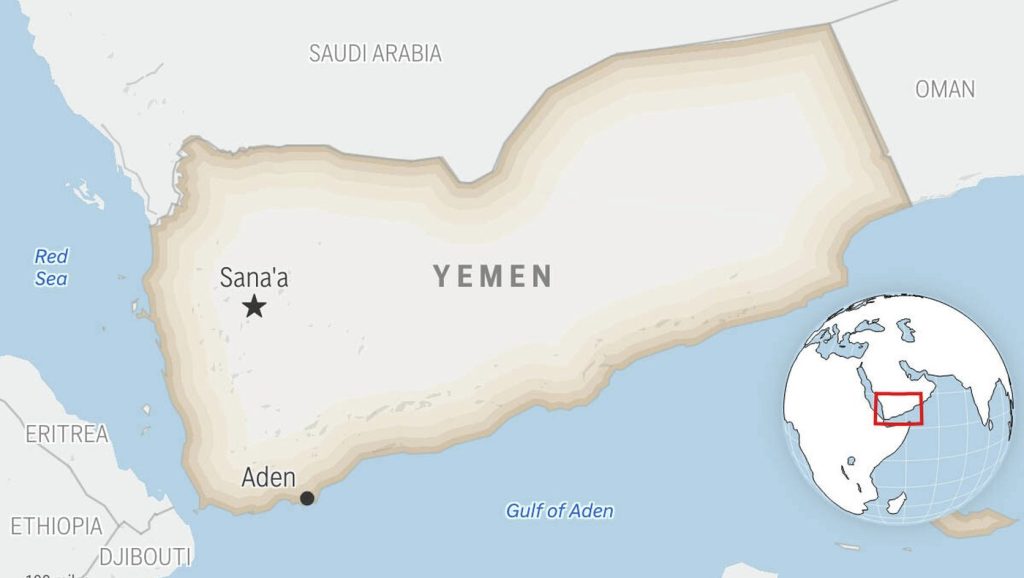DUBAI, United Arab Emirates (AP) — A suspected attack by Yemen’s Houthi rebels targeted a ship in the Red Sea on Thursday, officials reported, amid an escalation of missile fire from the militants aimed at Israel. This incident off the coast of Hodeida follows an Israeli airstrike last week that resulted in the death of the Houthis’ prime minister and several other officials.
The Houthis have notably been utilizing cluster munitions in their missile assaults on Israel, which deploy smaller explosives that are often more challenging to intercept, significantly increasing the likelihood of successful strikes. These attacks come as Israel is preparing for a new ground offensive against Hamas in Gaza, a region that has faced devastating consequences from the ongoing conflict.
According to the British military's United Kingdom Maritime Trade Operations center, an “unknown projectile” struck the side of a vessel during this latest attack, amidst heightened electronic interference. Fortunately, the ship and its crew were reported safe after the incident.
The private maritime security firm Ambrey confirmed the apparent attack, while another firm, EOS Risk Group, noted that the Houthis have ramped up their missile attacks targeting Israel in recent days. Martin Kelly, an analyst at EOS Risk Group, indicated that this shift marks a significant escalation in hostilities, noting a transition from sporadic launches to multiple attacks being executed on a daily basis.
As of now, the Houthis have not claimed responsibility for this specific attack, which is not uncommon as they often take hours or days to acknowledge their operations. In recent days, they have targeted at least one other ship in a similar manner.
From November 2023 to December 2024, the Houthis reportedly targeted over 100 vessels using missiles and drones amid the ongoing Israel-Hamas war in Gaza. Their campaign has resulted in the sinking of four ships and the deaths of at least eight mariners.
The Iranian-backed Houthis had previously paused their attacks during a temporary ceasefire in the war. However, they soon found themselves on the receiving end of an intense, weeks-long campaign of airstrikes that were ordered by U.S. President Donald Trump. This offensive was said to have ceased once a declaration of a ceasefire was made with the rebels. In a notable incident in July, the Houthis sank two vessels, leading to the death of at least four individuals aboard, while others were reported to be captured by the rebels.
The resurgence of Houthi attacks occurs as discussions around a new possible ceasefire in the Israel-Hamas conflict remain uncertain. Additionally, the future of negotiations between the U.S. and Iran regarding Iran’s nuclear program is now in jeopardy, following Israel’s initiation of a 12-day military operation against Iran, which included U.S. airstrikes targeting three Iranian nuclear facilities.
As tensions continue to escalate in the region, the implications of these developments are being closely monitored by international observers and military analysts alike. Security in maritime operations is becoming increasingly precarious due to the heightened threats from various factions within the ongoing conflicts.










